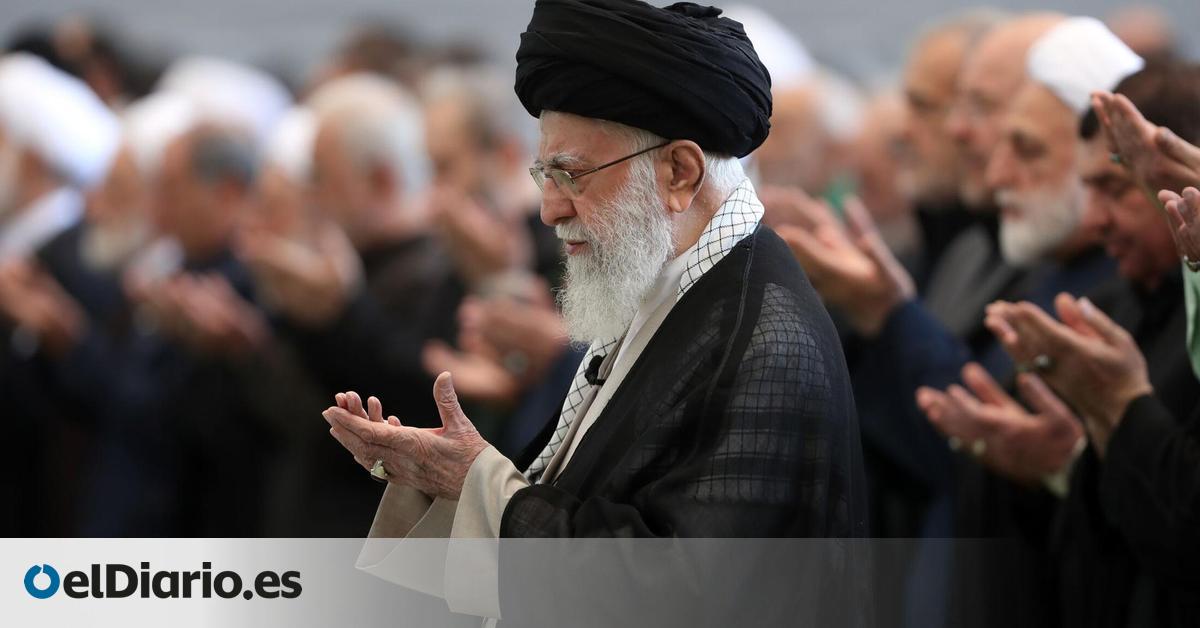
Iran resumed civil flights shortly before midnight after the suspension of flights announced by the Iranian Civil Aviation Organization and affecting flights from all airports in the country until Monday morning was lifted due to “restrictions.” “operational” amid tensions over a possible Israeli retaliation to Tuesday’s attacks against the Jewish State.
Specifically, both arrivals and takeoff operations have been suspended from 9:00 p.m. on Sunday until midnight.
Shortly after the measure was announced, the National Security and Foreign Policy Committee of the Iranian Parliament met urgently in order to “check the level of preparation of the units” to “face the existing threats”, according to informed the spokesman of the parliamentary commission Ebrahim Rezaei. Rezaei assured that in the face of any threat, Iran will respond “hard, quickly and overwhelmingly.”
Representatives from various institutions in Iran participated in the emergency meeting, including the General Staff of the Armed Forces, the Revolutionary Guard, the Army of the Islamic Republic, the Police Command, the ministries of Defense, Intelligence, Foreign Affairs and the Interior. and the Atomic Energy Organization.
On Wednesday, the ambassador of the Islamic Republic of Iran in Spain, Reza Zabib, assured that Iran will not launch a new operation against Israel unless the far-right government of Benjamin Netanyahu “attacks the territorial integrity of Iran or its main interests” in the region.
Last Tuesday, Iran launched almost 200 missiles at Israel in response to Israel’s operations in the region, which in recent months has assassinated the leader of Hamas in a secret operation in Tehran, wounded its Iranian ambassador during the explosion of wanted and has assassinated several high-ranking generals in both Lebanon and Syria, as well as his ally Hasan Nasrallah, leader of Hezbollah.
After the bombing, Iran canceled flights until Thursday morning, when authorities considered that safe flight conditions had been “guaranteed.”
“If Israel repeats its mistakes again, Iran’s response will be quick and stronger than before,” the ambassador said. Israel, for its part, has promised that Iran’s attack will have consequences. “Iran has made a grave mistake and will pay for it,” Israeli Prime Minister Benjamin Netanyahu said Tuesday.
In turn, this Sunday the Israeli Minister of Defense Yoav Gallant confirmed to Fox News his meeting on Wednesday in Washington DC with the US Secretary of Defense, Lloyd Austin, and, in response to questions from correspondent Trey Yingst of the North American television network, has not ruled out attacks against Iranian oil or nuclear infrastructure: “At this moment, everything is on the table.”
Israel resumes attacks on Beirut
Numerous international media have confirmed the warning of attacks by Israel on the Dahiyeh neighborhood, one of the southern suburbs of Beirut, the capital of Lebanon, controlled by Hezbollah. Minutes later, the Israeli Army launched strong air attacks against the area, as can be seen in numerous videos published on social networks.
Furthermore, according to the Israeli newspaper Haaretz, at least five Israeli citizens have been injured in Haifa, after the Israeli defense forces reported five missiles fired towards the coastal city from Lebanon.
Macron asks Netanyahu to give in to ceasefire
The French president, Emmanuel Macron, held a conversation this Sunday with the Israeli prime minister after this Saturday he asked to stop supplying weapons to Israel in the conflict in Gaza. Netanyahu has told him that he hopes his allies will not “impose restrictions that will only strengthen the Iranian axis of evil.”
“The prime minister emphasized that Israel’s actions against Hezbollah create an opportunity to change the reality in Lebanon for the benefit of stability, security and peace throughout the region,” explains a statement from the Prime Minister’s Office, which advances that both leaders “agreed to promote a dialogue” during the visit of the French Minister of Foreign Affairs, Jean-Noël Barrot, scheduled for tomorrow in Jerusalem.
For his part, Macron insisted to Netanyahu that “the time for a ceasefire has arrived” in the Middle East. “The President of the Republic has expressed to the Prime Minister his conviction that the time for a ceasefire has arrived. The supply of weapons, the prolongation of the war in Gaza and its extension to Lebanon may be counterproductive for Israeli security itself,” the French presidency detailed in a statement.
These words come after Macron said on Saturday, referring above all to the US and in an interview broadcast by France Inter radio, that it was necessary to seek “a political solution” to the conflict in Gaza, as well as to stop supplying Israel of weapons. The French leader also said in the interview that Lebanon “cannot become the new Gaza” and called for a de-escalation of the conflict.
Source: www.eldiario.es

